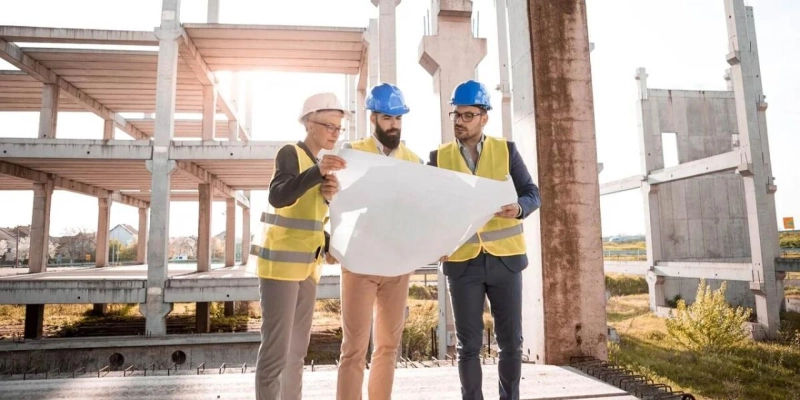In the ever-evolving landscape of the United Arab Emirates (UAE), where ambitious architectural marvels meet the horizon and urbanization knows no bounds, the demand for skilled professionals in civil and structural design remains insatiable. From the iconic skyscrapers of Dubai to the sprawling infrastructure projects in Abu Dhabi, the UAE continues to be a hub of innovation and development, creating a wealth of opportunities for those in the field of civil and structural engineering. Let's delve into the dynamics of civil and structural design recruitment UAE and explore the avenues for aspiring professionals.
Thriving Job Market
The UAE's construction sector has long been a driving force behind its economic growth, fueled by mega-projects and ambitious urban development plans. As such, the demand for civil and structural engineers is consistently high, with opportunities spanning various sectors including real estate, transportation, energy, and hospitality. Whether it's designing cutting-edge skyscrapers, state-of-the-art bridges, or sustainable infrastructure, professionals in this field are in constant demand, making the UAE an attractive destination for those seeking career advancement.
Key Skills in Demand
In a competitive job market, possessing the right skills can make all the difference. Employers in the UAE seek candidates with expertise in structural analysis, building design, project management, and proficiency in industry-standard software such as AutoCAD, Revit, and ETABS. Additionally, familiarity with local regulations and codes is highly advantageous, demonstrating an understanding of the unique challenges and requirements inherent to the region's construction landscape. Adaptability, innovation, and a collaborative mindset are also valued traits, given the dynamic nature of projects in the UAE.
Cultural Sensitivity and Global Perspective
Working in the UAE's multicultural environment requires a nuanced understanding of cultural norms and business practices. Professionals entering the market must be culturally sensitive and possess strong communication skills to collaborate effectively with diverse teams comprising individuals from various backgrounds. Furthermore, a global perspective is essential, as projects often involve international stakeholders and partnerships. Embracing diversity and fostering inclusive work environments are integral to success in the UAE's cosmopolitan setting.
Networking and Professional Development
In a competitive industry, networking can open doors to new opportunities and career growth. Engaging with professional organizations such as the Society of Engineers - UAE and participating in industry events and conferences can help expand one's professional network and stay updated on the latest trends and technologies. Additionally, pursuing certifications and continuing education programs demonstrates a commitment to professional development, enhancing credibility and marketability in the field.
Recruitment Agencies and Job Portals
Navigating the job market in a foreign country can be daunting, but recruitment agencies and online job portals offer valuable resources for job seekers. Specialized agencies focused on engineering recruitment can connect candidates with reputable firms and assist in navigating the recruitment process. Moreover, leveraging online platforms tailored to the UAE market, such as Bayt.com and GulfTalent, enables individuals to explore job opportunities, submit applications, and showcase their skills to potential employers.
Embracing Innovation and Sustainability
As the UAE strives to position itself as a global leader in sustainability and innovation, professionals in civil and structural design play a pivotal role in shaping the future of the built environment. Embracing sustainable practices, such as green building design and renewable energy integration, is not only environmentally responsible but also economically advantageous. Moreover, leveraging technology and digital tools for building information modeling (BIM) and predictive analytics enhances efficiency and minimizes risk in project delivery.
Conclusion
In conclusion, civil and structural design recruitment in the UAE presents a myriad of opportunities for talented professionals looking to contribute to transformative projects and advance their careers in a dynamic environment. By honing key skills, embracing cultural diversity, and staying abreast of industry trends, individuals can position themselves for success in this thriving market. With the UAE's ambitious vision for the future, the demand for skilled engineers will continue to soar, making it an exciting destination for those passionate about shaping the skylines of tomorrow.



